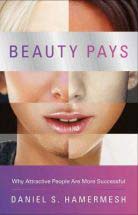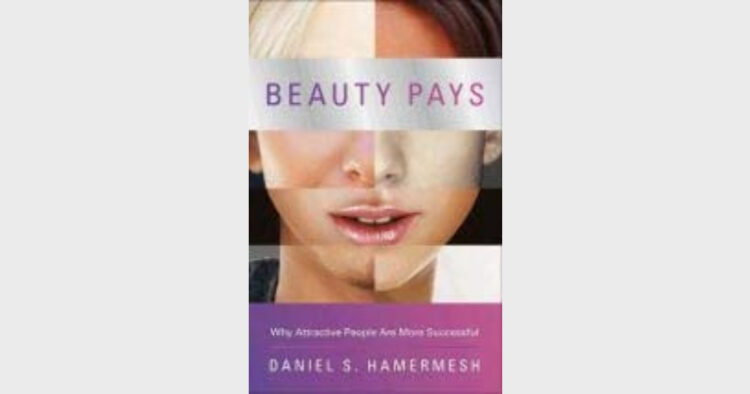Skin deep: Beauty pays??
By Dr Vaidehi Nathan ?
 Beauty Pays – Why Attractive People Are More successful, Daniel S Hamermesh, Princeton University Press, Pp 216 (HB), $ 24.95.?
Beauty Pays – Why Attractive People Are More successful, Daniel S Hamermesh, Princeton University Press, Pp 216 (HB), $ 24.95.?
All humans want to look beautiful. Some are born beautiful others strive to get it. Does beauty pay? Yes, it does says Daniel S Hamermesh in his interesting book Beauty Pays – Why Attractive People Are More Successful. According to him, beautiful people earn more in life, get better opportunities and make more friends.
But then, beauty is a relative term, specific to cultures. Not really, he says. Beautiful people are acknowledged everywhere though there may be varying degrees of appreciation. After a lot of study, Hamermesh has even quantified in monetary terms the gains beautiful people make. Beautiful people earn $230,000 more than the others over the lifetime. Men get better advantage than women in looks.
The book throws up a lot of interesting statistics. “In 2008, the average American household spent $718 on women’s and girls’ clothing; $427 on men’s and boys’ clothing; $655 on infants’ clothing, footwear, and other apparel products and services; and $616 on personal care products and services. Such spending totalled roughly $400 billion and accounted for nearly 5 per cent of all consumer spending that year.”
Also, according to Hamermesh, a majority of people felt that discrimination based on looks in the US exceeded discrimination based on ethnicity/national background.
However, enormous amount of money spent on Botox and plastic surgery does not commensurately enhance the natural beauty, Hamermesh says. According to him the economic approach to beauty is a natural complement to economic research on less general topics such as suicide and sumo wrestling, sleep and commercial sex. “The economics of beauty illustrates the power of using very simple economic reasoning to understand phenomena that previously have been approached in other ways” he says.
Hamermesh does not discuss what constitutes good looks. But what is the outcome of being beautiful, average and bad looking. His writings are America-centric, though it must be applicable to larger part of the world. It is not without reason John Keats said “A thing of beauty is a joy forever.” The book is absorbing and disturbing, for the thought upper most in the mind is ‘Am I beautiful (enough).’Daniel S Hamermesh is the Sue Killam Professor in the Foundations of Economics at the University of Texas and professor of labour economics at the Maastricht University in the Netherlands.
(Princeton University Press, 41, William Street, Princeton, New Jersey 08540)













Comments